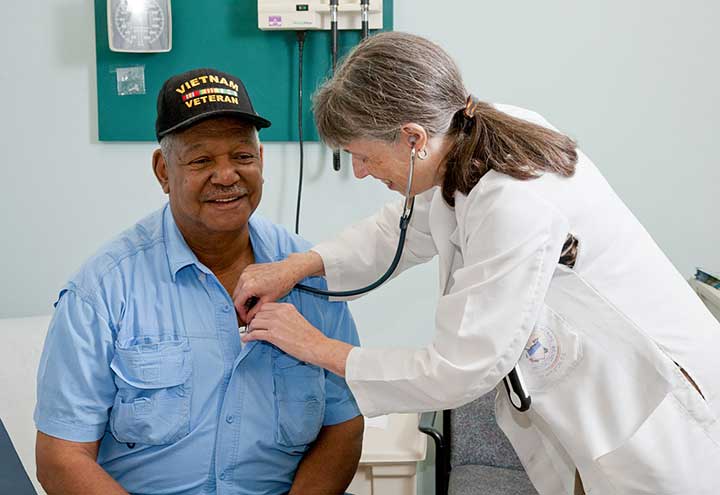By Rosemary C. Polomano, PhD, RN, FAAN
Advances in battlefield trauma management have significantly improved survival among military personnel injured in the current Afghanistan and Iraq conflicts, compared to soldiers wounded in previous wars. Yet soldiers with serious combat injuries face devastating life-altering effects, such as major limb deformities, amputations, and traumatic brain injuries.
Combat injuries can damage the peripheral and central nervous systems, resulting in severe acute pain. In many cases, prolonged acute pain leads to complex chronic pain syndromes. After overcoming life-threatening consequences of their injuries, wounded soldiers commonly face prolonged recovery and rehabilitation marked by challenges in coping with persistent pain and the stress of reintegration into civilian life. Pain is a leading cause of veterans’ disability, and acute and chronic pain afflict military personnel and veterans in proportions far exceeding those of the general population.
Thousands of military service members have been injured in Iraq and Afghanistan, and many receive care in military and Veterans Affairs (VA) healthcare facilities. Eventually, many are able to return to civilian life, where they require care in civilian health settings and encounter civilian nurses.
Nurses provide pain-management care to military personnel and veterans and promote transitions across all levels of care in the Department of Defense (DoD) and VA systems. Military nurses deliver care in military hospitals, VA medical centers, and primary care settings.
- In deployed combat support hospitals, nurses deliver life-saving care for patients with devastating injuries and, in conjunction with other providers, make critical decisions regarding pain treatments in preparation for and during evacuation to other military treatment facilities.
- At military hospitals, nurses participate in early and aggressive multimodal pain care, from initial hospitalization to rehabilitation.
- In VA medical centers, nurses contend with the aftermath of chronic pain and its management and assist veterans in their ongoing rehabilitation and reintegration into society.
Across all these levels of care, nurses assume responsibility for ensuring safe, high-quality pain management based on scientific knowledge, technical proficiency, effective collaboration, and patient and family advocacy. Specialized pain-management nursing care is provided throughout military and VA facilities in accordance with the 1996 Standards of Clinical Nursing Practice for Pain Management. In 1998, the American Society for Pain Management Nursing (ASPMN) issued its own Standards of Clinical Practice for the Specialty of Pain Management Nursing. As the primary professional organization representing the largest number of nurses specializing in pain management, ASPMN seeks to establish core competencies through a core curriculum and national certification exam.
This American Nurse Today special report examines scientific and literature based perspectives on management of acute and chronic pain in injured military personnel across the continuum of care in the military and VA health services. It complements a supplement to the June 2011 issue of The Federal Practitioner based on a live meeting of pain-management experts. The latter publication provides a more extensive discussion of our current understanding of pain mechanisms and the continuum of care for military personnel. It highlights models for effective pain management in place at many DoD and VA facilities—models that can be applied systemwide to achieve the goal of standardization of care for military personnel with pain. These care models are applicable to civilian healthcare facilities.
Effective pain management is a critical component of healthcare for soldiers and veterans. Nurses’ knowledge of the principles of pain management and analgesic pharmacotherapy, the patient and family-centered care they provide, and the trusting relationships they build with patients and families define professional nursing practice in alleviating pain and suffering and promoting health and well-being. We are indebted to our colleagues in military and VA nursing practice who devote their careers to serving our country through the expert
compassionate care they deliver.
Rosemary C. Polomano is an associate professor of pain practice at the University of Pennsylvania School of Nursing and an associate professor of anesthesiology and critical care (secondary) at the University of Pennsylvania School of Medicine in Phila


















